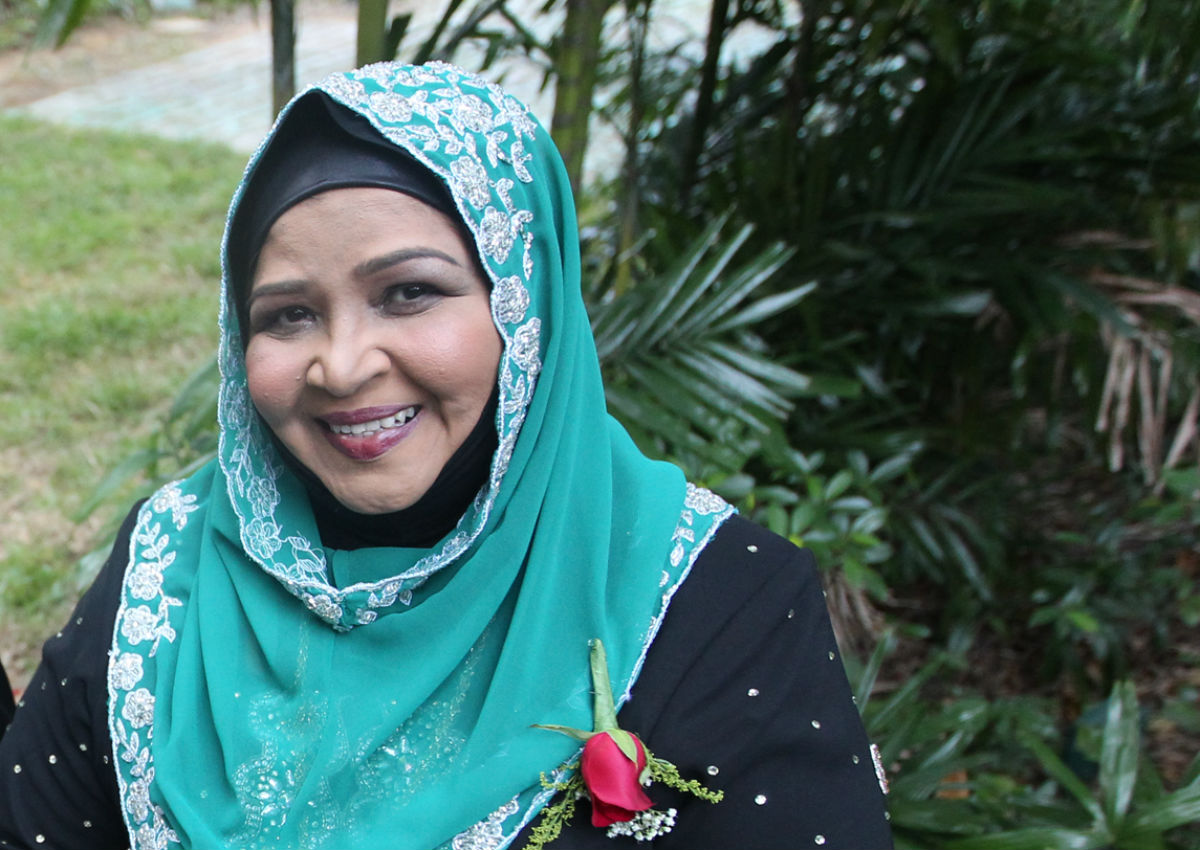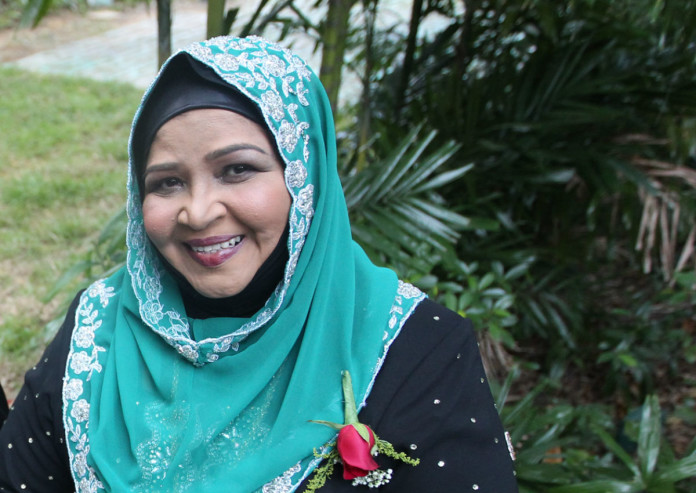For Muslim businesses hoping to expand overseas, Japan may not be an obvious draw.
After all, the crescent moon and star is likely not that common in the land of the rising sun – a country of about 127 million people with only around 100,000 Muslims, The Japan Times has previously reported.
But a number of Singapore Muslim businesses see growth potential ahead of the Tokyo Olympics in 2020, when Japan is expected to host a million Muslim visitors.
Last month, 10 Singapore fashion and food and beverage businesses visited Tokyo and Hokkaido on a week-long mission to network and showcase their products.
Designs from Singapore fashion businesses Alia Anggun, Fatimah Mohsin The Wedding Gallery, Sahara Shawl, Meem Clothings and Weddingku Gallery featured in Tokyo’s first “Modest Fashion Show”.
Separately, Singapore companies served up satay, briyani and beef rendang at a tourism expo.
These small and medium-sized enterprises were led by the Singapore Malay Chamber of Commerce and Industry (SMCCI), which was organising its second such mission to Japan.
The first mission visited Tokyo, Kyoto and Osaka last year.
The chamber’s assistant manager for events and special projects, Ms Mariam Moni, told The Sunday Times that none of its members had ventured into the Japanese market.
But this might soon change.
Five Singapore fashion designers aged between 23 and 41 told The Sunday Times that Tokyo’s status as a fashion capital could lead to demand for “modest fashion” as the city’s fashionistas mix and match.
This is exemplified, they said, by Japanese fashion label Uniqlo’s tie- up with British modestwear fashion designer Hana Tajima this year.
Ms Nadiah Khalid Abdat, 30, of Sahara Shawl, cited high-quality fabrics and workmanship as factors that drew her to Japan. A brand’s success in Japan, she said, would be testament to its quality.
Ms Nur Hanis Rohayat, 23, of Meem Clothings, said: “We want to tell people we’re not really stuck in Singapore, and we’re trying to grow regionally and globally as well. People will realise that Singapore designers can actually go far.”
The designers said they are working towards jointly launching an e-commerce portal to make their clothes available overseas.
Singapore restaurateurs are also hoping to make it big in Japan.
Madam Kader Beevi Ayoob, 58, who runs Saffrons Restaurant in Tampines, which is known for its briyani, said that as exposure to Islam increases in Japan, she expects people to “become more adventurous with their tastebuds and open to trying new things”.
She does not have any franchises outside Singapore yet, but said a long-term goal is to open a brick- and-mortar outlet in Japan
There is still a sense that there are “limited choice of places for Muslims to eat” in Japan, said Madam Roszilah Nor, who owns the halal Heiraz Bakery in Changi.
This presents opportunities for Singapore Muslim businesses, especially when the local market is “saturated and shrinking”, said Mr Abdul Kadir Abdul Hamid, founder of food distributor Bagus Foodstuff.
Mr Hasan Abdul Rahman, operations manager of Pondok Abang, which has expanded from a Clementi hawker stall to a food distribution business, said his company is in talks with a Japanese firm “to import our products to Japan, and export theirs to Singapore”.
For Madam Samsiah Suliman, whose company Jumain Sataysfaction already sells satay products to markets such as as Hong Kong, Canada and the United Arab Emirates, the Japan market is no less enticing.
Madam Samsiah, who this year was named SMCCI’s woman entrepreneur of the year, said: “Some of the businesses never thought of coming to Japan to sell, and they say their product is not ready.
“If you feel that you want to wait until your product is ready, we may never be ready.”
Japan to unify Muslim certification
Japan has taken its first step towards standardising its Muslim certification process, with an eye on an expected one million Muslim visitors for the 2020 Tokyo Olympic Games.
Unlike in Singapore, where the Islamic Religious Council of Singapore is the sole body overseeing halal certification, Japan has at least 20 entities with their own standards.
This could be confusing, said Mr Shinya Yokoyama, who runs the Halal Media Japan online portal that compiles Muslim-friendly businesses.
The situation is compounded because different countries recognise different entities.
“What they have to do is to understand the differences among them – for instance, the purity of salt – and how they can adjust to a Japanese standard which could, in turn, be recognised by the Islamic countries as well,” he said.
It was announced last month at the Halal Expo Japan event that four of the biggest groups – the Japan Muslim Association, Japan Halal Association, Japan Islamic Trust and Japan Halal Foundation – willmeet to discuss how to set a common standard.
The certification, to start in April, will be overseen by a newly set up Japan Muslim Council and be monitored by Japan’s mosques, said Mr Yokoyama.
The system will have ratings of one to three stars, based on these criteria:
One star: Has a separate halal menu with food cooked using halal meat – as well as a non-halal menu
Two stars: Serves only halal dishes, but also offers alcohol
Three stars: Serves only halal dishes with no alcoholic drinks, and employs Muslim staff
Mr Yoichiro Shimada, who runs halal-certified ramen shop Naritaya in Tokyo’s Asakusa district, said certification is important for visitor confidence and to help non-Muslim Japanese understand the worldview of Muslims.

This article was first published on December 11, 2016.
Get a copy of The Straits Times or go to straitstimes.com for more stories.






